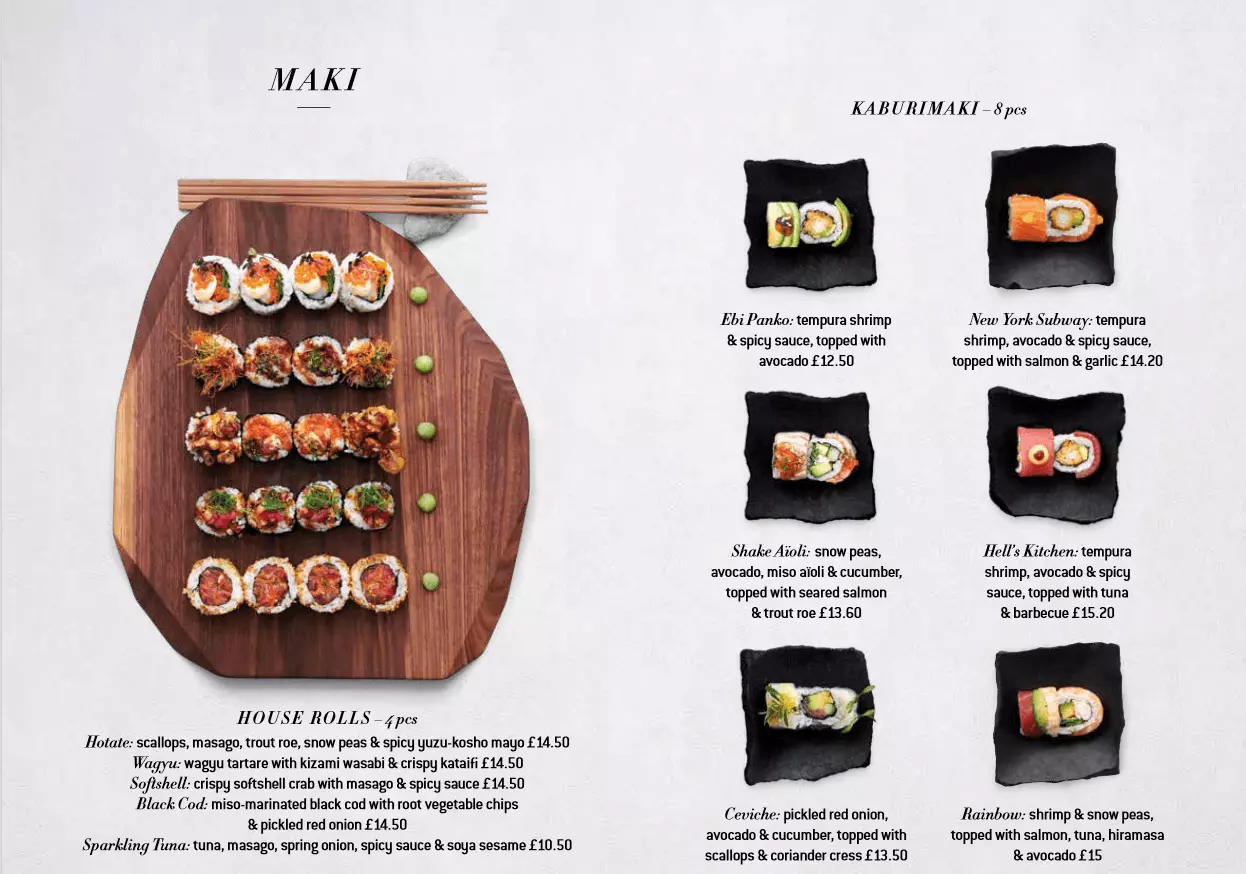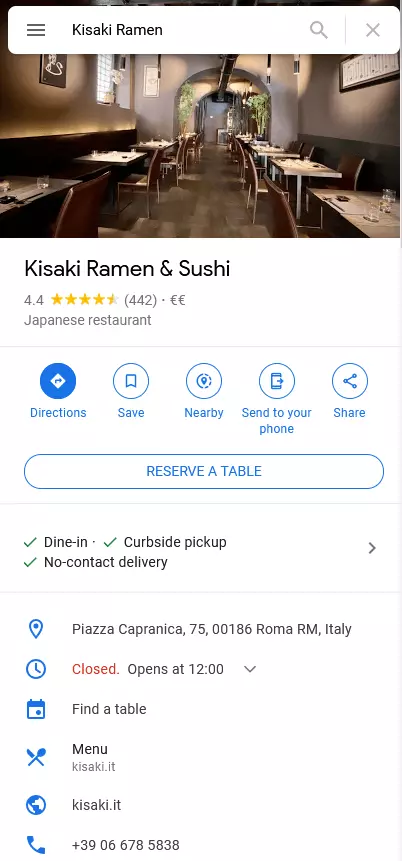Successful Click & Collect: 5 Tips for Restaurants
Customers will often choose a restaurant or café online, and ordering take-out is becoming ever more popular – in the UK alone, Click & Collect services are set to increase by 55.6% by 2022. A new kid on the block in the world of take-out is where customers order food and beverages via a website and pick the order up themselves - Click & Collect. This offers gastronomy businesses new sales opportunities and enables customers to enjoy their favourite dishes at home. In other words, both parties benefit, especially in times of the COVID-19 pandemic, and the resulting restrictions to public life. What is important to know to successfully sell via Click & Collect?
Why take-out sales are important for restaurants right now
Gastronomy is one of the sectors that has been particularly strongly affected by the measures to contain the corona virus pandemic. Due to closures, lots of businesses have struggled to sell their food and drinks.
Some divisions have recovered somewhat faster than others. Restaurants, pubs, and bars, for example, were able to make up for lost profit by getting creative. Places that perhaps didn’t offer take-out before now had to reconsider the way they ran their businesses, and Click & Collect is a great solution for this. It may even be an important feature in the hospitality industry in the years after the pandemic.
- Focus on your business while we set up your shop
- Copywriting, SEO, maintenance and more included
- Learn how to manage your site with free training
Your own website: A requirement for Click & Collect
The digitisation of local businesses is becoming increasingly important, and the hospitality industry is no exception. Providing a restaurant website means that customers can inform themselves about the food on offer, prices, and possible special offers. However, it is also possible to integrate features that are useful for take-out sales, such as an interactive menu. Many ordering systems also offer the option of paying online - a real advantage, especially in view of the hygiene measures currently suggested.
With the right strategy it is also easier to gain new customers by having your own website. An inexpensive way to promote your website and therefore also your business is via search engine optimisation (SEO). If your website is optimised according to good SEO criteria, the chances are that it will end up in the top ranks of search results. This is important because the higher up you are listed, the more likely it is that searchers will find you.
If you would like to create a website for your restaurant, there is an easy method which doesn’t require any technical know-how: IONOS’ website builder. Use the special design templates for restaurants and create a professional Internet presence in a few minutes. This is also an optimal set up for good search engine optimisation, which makes it easier for you to improve your ranking in Google.
Tips for a successful Click & Collect service
Whether a small café or specialty restaurant, the following tips will help you to successfully implement Click & Collect or optimise your existing service.
1. Integrate a digital menu
Physical menus displayed outside of your business are perfect to draw in walk-in customers. This also works on the Internet! Integrate a menu on your website to give potential guests a better understanding of your menu.
It is relatively easy to integrate a menu as a PDF file. However, this is not ideal for mobile use – and lots of people use their cell phones to browse. To achieve a better user experience (UX) for your customers, integrate the menu directly into the website. It is even easier for your customers if they can place an order directly from the menu.
Simplicity and clarity are important, meaning that your menu should be well structured. Nigiri, Maki, Inside Out Rolls - the headings for different categories help to keep the overview and guide people through the menu. Do you use local produce or work with an organic farmer? Point this out on the menu!
The first thing a visitor to your website will notice is the pictures. Present both the restaurant itself and the dishes in their best light. This is harder than it sounds. On the picture, food often doesn’t look as delicious as it does on the plate. Photographers who specialise in product photography for restaurants can help to display food perfectly. They have the appropriate equipment and expertise and it may be worth consulting one.
If you decide to use the IONOS website builder, comprehensive functions and filters are available for editing your images. Choose from more than 17,000 archive images to complement your own photos.
- Professional templates
- One-click design changes
- Free domain, SSL and email
2. Advertise your menu properly
Even if the quality of food and drinks in a restaurant is high, relying solely on word of mouth is a risky marketing strategy. With the right advertising measures, you can gain an audience for your restaurant and take-out services. It is important to know that advertising in the catering trade is different from that in other industries. Above all, it should be local. Classic ads in the local press or flyers are one option. But to reach more people, the Internet has a lot to offer.
When people get hungry or have a craving for a certain type of cuisine, they often search for local restaurants via Google. A company entry in Google MyBusiness helps your business’ visibility online. The search engine is free, simple, and effective. You should have your address, opening hours, and telephone number included so that potential guests can easily reach you. Especially important for Click & Collect services is a link to your menu.
The first impression people get of your restaurant is crucial. Therefore, it is a good idea to design your company profile with photos and to describe what you offer in more detail. In addition, use this platform to get in touch with your customers. Reply directly to Google reviews. If you regularly run promotions or offer special discounts, make sure you highlight these, too.
If you’ve already built up a strong social media presence, take some time to look into social commerce, which is, in short, selling products via social media. Selling via Facebook and Instagram works for the hospitality sector too. Vouchers are another great idea, as they can be bought online and picked up on site, or sent by email or post.
To sell vouchers and other products on Instagram, you need a Facebook store. This is a digital catalogue that displays products and related information. You do not necessarily need your own online store for this purpose.
For a small range of products, such as vouchers with different values, the Social Buy Button from IONOS is also an option for the catering trade. The eCommerce solution can be easily integrated into your existing website and social media accounts. Selling through social media requires its own kind of work, though, so although it has great benefits, it is more work at the end of the day.
Another way to attract new guests and maintain relationships with existing customers is email marketing. Registration forms can be easily integrated into a website using appropriate tools. Even the design and send out can be handled with automated solutions. Before you create a newsletter, it is good to think about the content. So readers don’t see the newsletter as spam, it is a good idea to ensure that what you’re sending out has value to your customers. Regularly changing menus, new services, or special offers are sure to interest your customers. A newsletter is also great for informing your subscribers about hygiene precautions and the special measures you are taking during the corona pandemic.
3. Make your quality standards clear
Your guests are used to perfect service and high-quality products? Make sure that your high standards are also implemented in your take-out service. Start by reviewing the menu. After all, it doesn’t always make sense to offer the entire menu for take-out. One reason for this is the preparation time. The food should be ready to be picked up quickly - who wants to wait in front of the restaurant when they are really hungry? In addition, the dishes should survive the transport route, both in terms of how they taste once your customer is home, and how they look.
The question of packaging is also important when offering take-out. While pizza has been delivered or collected in more or less the same box for decades, there are many different options for pasta, soups and the like. It is also advisable to consider not only the practical but also the environmental aspects when choosing packaging. To avoid unnecessary waste, there are now many different types of packaging made of materials that are 100 percent biodegradable. Customers will also be attuned to plastic waste, so you may get better reviews if you bear that in mind. For example, use bowls and cups made of sugar cane fibres or recycled cardboard with a starch coating on the inside.
4. Make sure you can offer safe collection and payment
Hygiene has always been important in the hospitality industry. In the times of Covid-19, however, it is even more so. Strict hygiene measures should be taken to protect staff and customers.
Think about the safest way to prepare and hand over your food to your customers. Ideally, you’d hand over finished meals to the customer through a window or over a temporary counter. If this is not possible, think about putting up a sign asking customers to keep their distance from one another and wearing a face covering. In addition, you should offer customers a way to disinfect their hands, for example by using a disinfectant dispenser in the entrance area.
The less contact, the better. This also applies to payment. Ask your customers to pre-order online or by phone and pay in advance using PayPal, for example. The customer should feel safe and they will feel more comfortable if you inform them of your security measures online, via your newsletter, and on site at your restaurant.
5. Offer a loyalty program
Regular customers are especially important for restaurants. How do customers become regular customers? Loyalty programs are effective measures for customer retention. If you want to keep it simple, a stamp card is a good option. Every time a customer orders food from you for pick-up, they get a stamp. After a number of visits (or pick-ups, rather!) they receive a free meal or drink of their choice, for example.
You can also offer your guests a digital customer card in the form of an app. It works on the same principle as a stamp card but offers you the advantage that you receive detailed statistics on the behaviour of the card owner and can better individualise the loyalty program to their wants.
The situation is similar with a digital customer account. Customers can be rewarded a certain percentage of their order for each take-out order. They can then redeem the accumulated credit later at your business. A guest has been a regular customer for years and places orders very regularly? Perhaps a VIP status will be a good option in this case, including special offers.
Again, you can inform your customers about your loyalty programs and special offers for regular customers via social media, newsletters, your website, and on site.
Looking for an alternative to the traditional .co.uk extension, or want to grow your online presence? Give .uk a try today.
£1 for 1 year!




